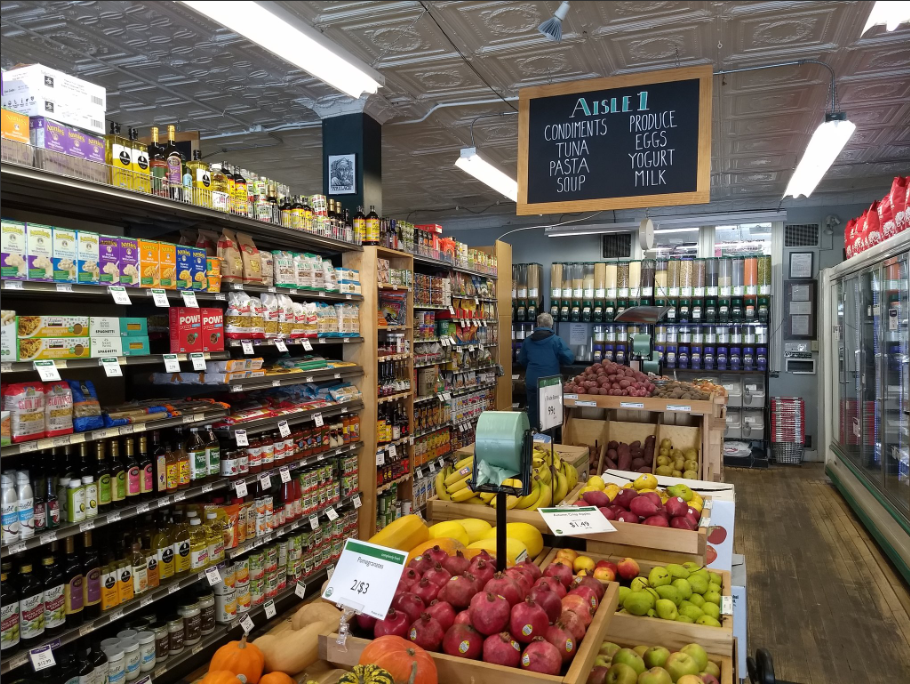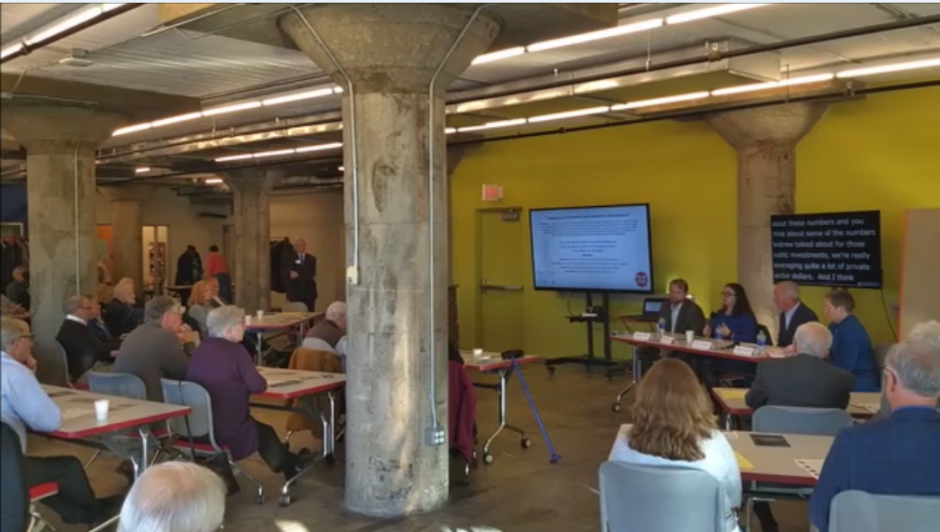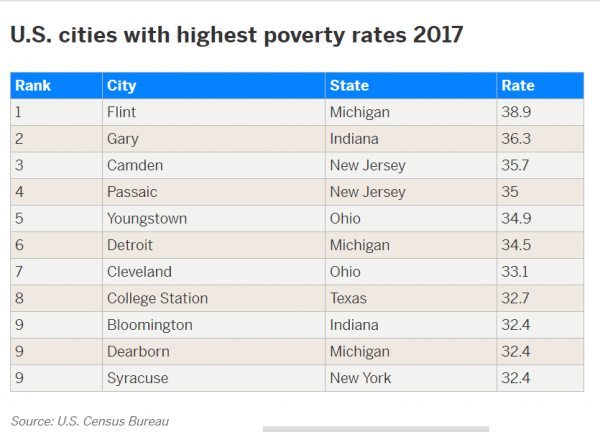
Central New York local businesses seem to be at a crossroads in which there is an increasing number of jobs available, but negative perceptions contribute to a worrying lack of workforce.
This was the main conclusion of the expert panel discussion on Thursday morning at the Nancy Cantor Warehouse in downtwon Syracuse. Andrew Fish, Senior VP of Business Development at CenterState CEO; Nora Spillane, Deputy Commissioner of the Department of Business Development at the City of Syracuse; Joe Russo, Economic Development Program Manager at National Grid; and Laura Miller, General Manager at Darco Manufacturing, Inc., where the panelists in a conversation moderated by James Keib, Executive Director of FOCUS Greater Syracuse.

“When companies are looking, we don´t even get the phone call until they have done hundreds of hours of research on where they want to go. Some of that research is looking at what is being publicized in our local circulations, looking at what comments are sometimes on those local publications, and trying to understand what is the community´s perception as it relates to economic development and jobs, and if it is positive or negative, and that is one of our biggest liabilities,” Fish said.
The meeting was the product of a partnership between Thursday Morning Roundtable, an initiative sponsored by the Office of Community Engagement at Syracuse University, and FOCUS (“Forging Our Community’s United Strength,”) Greater Syracuse, “a community-wide visioning program created with the goal of making Syracuse a better place to live and work.” had the purpose of evaluating the current economic situation and the initiatives that are in place to stimulate economic development in Syracuse and the larger Central New York area.
“FOCUS´s main priority is to inform the public about key issues that have an impact in our community, and that is why we started these series on economic development,” Keib said.
Panelists also emphasized the lingering issue of poverty as one of the key areas to be addressed in order to foster economic development. A wholistic approach is needed in order to implement purposeful job positions that alleviate the poverty issue.
“We can create five thousand jobs tomorrow, and if we are not intentional about their accessibility, their pathways and location, that is going to be a problem. There has to be an intentionality about where that job is created.” Fish said.

In this apparent panorama of negativity, some outliers manage to continue to thrive in the local economy. It is the case of the Syracuse Cooperative Market, a “community grocery store” in which members of the community are directly invested. The CoOp´s particular membership structure allows it to establish a reciprocal relationship with the local economy.
“Anyone who patronizes at the CoOp should feel very comfortable that it is part of our mission to operate for the benefit of our community. We take that very seriously… The local economy really is at the core of what we do,” DeChario said.
The store also integrates that mission into the products it provides to customers, with a heavy emphasis on local goods. This approach has allowed it to become a solid presence in the local economic landscape since its foundation in 1972.
“Being a CoOp, we operate for the mutual benefit of our customers, and they have tasked us with being a store that is really focused on organic and local products. The goal is to really get good, healthy food into the community,” DeChario said.





